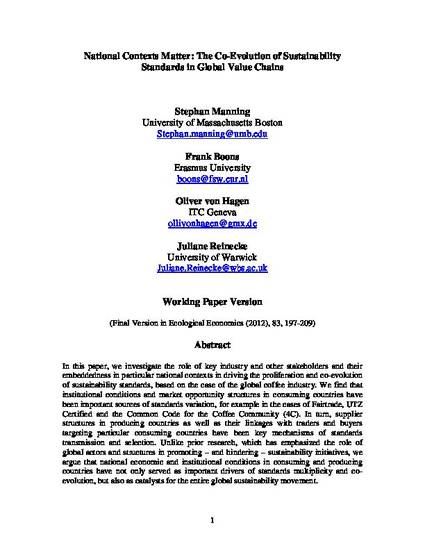
In this paper, we investigate the role of key industry and other stakeholders and their embeddedness in particular national contexts in driving the proliferation and co-evolution of sustainability standards, based on the case of the global coffee industry. We find that institutional conditions and market opportunity structures in consuming countries have been important sources of standards variation, for example in the cases of Fairtrade, UTZ Certified and the Common Code for the Coffee Community (4C). In turn, supplier structures in producing countries as well as their linkages with traders and buyers targeting particular consuming countries have been key mechanisms of standards transmission and selection. Unlike prior research, which has emphasized the role of global actors and structures in promoting – and hindering – sustainability initiatives, we argue that national economic and institutional conditions in consuming and producing countries have not only served as important drivers of standards multiplicity and co-evolution, but also as catalysts for the entire global sustainability movement.

See also: http://ssrn.com/abstract=1752655